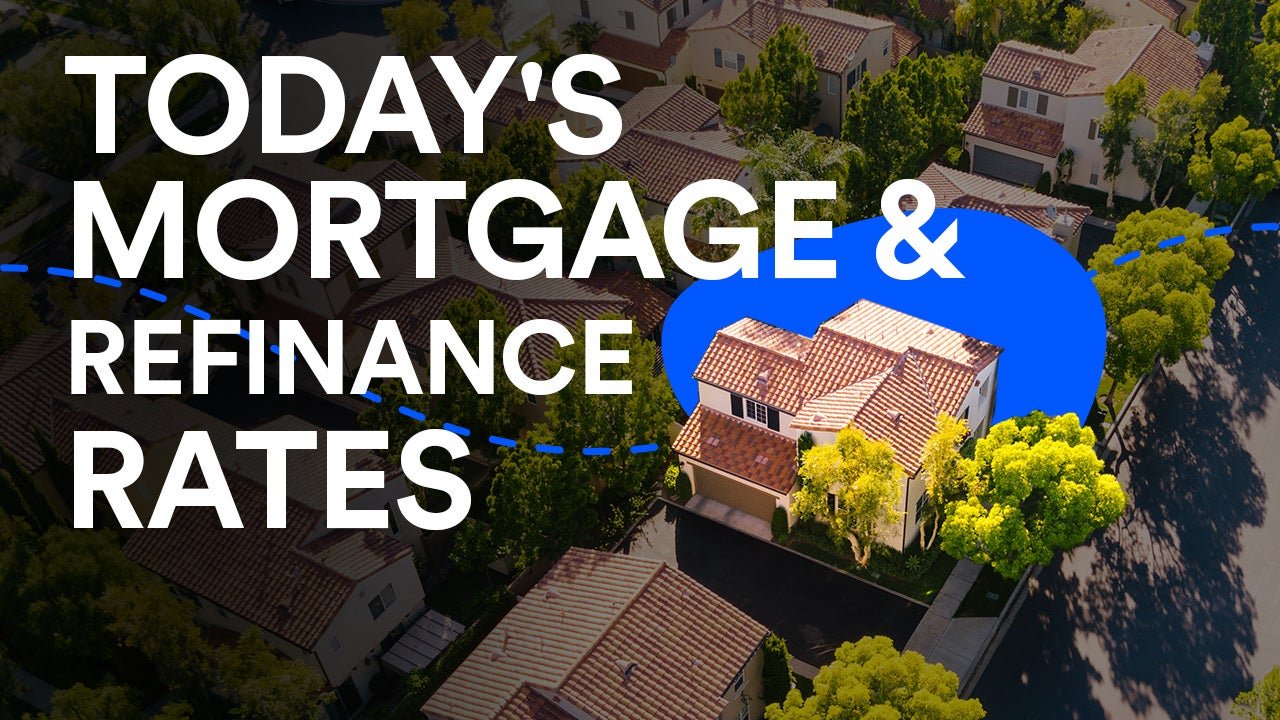Understanding Mortgage Rates
Mortgage rates are the interest rates charged on a mortgage loan. They play a crucial role in determining your monthly payments and the total cost of your loan over its lifetime. Understanding mortgage rates is essential for making informed decisions when purchasing a home or refinancing an existing loan.
Why 2024 is a Critical Year for Home Loans
The year 2024 is shaping up to be pivotal for the housing market due to various economic and market conditions. With potential shifts in the economy, government policies, and market demand, staying updated on current mortgage rates can help you take advantage of favorable terms and save money.
Mortgage Rate Basics
Definition of Mortgage Rates
Mortgage rates are the percentage of interest charged by lenders on a home loan. They can be either fixed, remaining the same throughout the loan term, or variable, changing periodically based on an index.
Fixed vs. Variable Rates
- Fixed Rates: Offer stability with consistent monthly payments.
- Variable Rates: Can start lower but may fluctuate, leading to uncertain future payments.
How Mortgage Rates are Determined
moertgage rates are affected by a few elements including:
- Economic conditions
- Federal Reserve policies
- Inflation rates
- Housing market trends
- Borrower’s credit profile
2024 Mortgage Rate Trends
Historical Comparison
Comparing current rates with historical data helps understand the market’s direction. Over the past decades, rates have seen significant highs and lows influenced by economic cycles.
Economic Factors Influencing 2024 Rates
Key factors shaping 2024 mortgage rates include:
- Inflation levels
- Employment rates
- Federal Reserve policies
- Global economic stability
Predictions for the Future
Experts predict a moderate increase in rates due to economic recovery and inflation pressures. Staying informed on these trends can help you decide when to lock in a rate.
Types of Mortgage Loans
Conventional Loans
Conventional loans are not insured by the federal government and typically require higher credit scores and down payments.
FHA Loans
FHA loans are insured by the Federal Housing Administration and are designed for lower-income borrowers with lower credit scores.
VA Loans
VA loans are guaranteed by the Department of Veterans Affairs and offer favorable terms for military veterans and their families.
USDA Loans
USDA loans are backed by the U.S. Department of Agriculture and are intended for rural homebuyers with low to moderate incomes.
Jumbo Loans
Jumbo loans exceed the conforming loan limits set by Fannie Mae and Freddie Mac, and typically have stricter credit requirements and higher interest rates.

Factors Affecting Your Mortgage Rate
Credit Score
A higher financial assessment frequently brings about lower loan fees. Moneylenders view borrowers with fantastic credit as safer.
Loan Amount
The size of your loan can affect your rate. Larger loans may have higher rates due to increased risk.
Down Payment
A larger down payment can lower your interest rate by reducing the loan-to-value ratio.
Loan Term
More limited term credits ordinarily have lower rates however higher regularly scheduled installments.
Debt-to-Income Ratio
Moneylenders evaluate your relationship of outstanding debt to take home pay to decide your capacity to reimburse the credit. A lower proportion can bring about a superior rate.
Market Conditions
Current market conditions, including supply and demand in the housing market and broader economic trends, also influence rates.
How to Compare Mortgage Rates
Using Online Comparison Tools
Online tools can provide instant rate comparisons from multiple lenders, helping you find the best deal.
Consulting with Mortgage Brokers
Brokers can offer personalized advice and access to exclusive rates that you might not find on your own.
Reading the Fine Print
Understanding the terms and conditions of each offer is crucial. Look beyond the interest rate to consider fees and other costs.
Understanding APR vs. Interest Rate
The APR (Yearly pervent Rate) incorporates both the loan cost and extra expenses, giving a more far reaching perspective on the credit’s expense.
Tips for Securing the Best Mortgage Rate
Improving Your Credit Score
Paying down debt, avoiding new credit inquiries, and correcting errors on your credit report can boost your score.
Timing Your Loan Application
Applying when rates are low or before expected rate hikes can save you money.
Shopping Around
Comparing offers from multiple lenders ensures you get the best rate available.
Considering Discount Points
Paying points upfront can lower your interest rate, reducing your long-term costs.
Negotiating Terms
Don’t be afraid to negotiate with lenders on interest rates and fees.
The Application Process
Pre-Approval vs. Pre-Qualification
- Pre-Approval: A more rigorous process that includes credit checks and income verification.
- Pre-Qualification: A preliminary step based on self-reported information.
Required Documentation
Lenders typically require proof of income, employment, credit history, and assets.
Steps to Apply for a Mortgage
- Gather documentation
- Choose a lender
- Complete the application
- Await approval
- Close the loan
Common Pitfalls and How to Avoid Them
Avoid common mistakes such as not checking your credit report, failing to budget for closing costs, and not shopping around for the best rates.
Closing Costs and Fees
What to Expect
Closing costs can include origination fees, appraisal fees, title insurance, and more.
How to Minimize Costs
Compare fees among lenders, negotiate where possible, and consider no-closing-cost options.
Understanding Lender Fees
Be aware of various lender fees such as application fees, underwriting fees, and loan processing fees.
Escrow and Title Fees
These fees cover the cost of ensuring the property title is clear and handling the transfer of ownership.
Refinancing Your Mortgage
When to Consider Refinancing
Refinancing can be beneficial if you can secure a lower interest rate, shorten your loan term, or switch from a variable to a fixed rate.
Steps to Refinance
- Assess your financial situation
- Check your credit score
- Compare rates from multiple lenders
- Submit an application
- Close the new loan
Benefits and Drawbacks
Benefits include lower monthly payments and interest savings. Drawbacks can include closing costs and extending your loan term.
How to Calculate Break-Even Point
Calculate how long it will take to recoup the costs of refinancing through monthly savings.
Impact of Mortgage Rates on the Housing Market
Buyer’s Market vs. Seller’s Market
Low rates can lead to a buyer’s market with increased demand, while high rates may result in a seller’s market with lower demand.
Regional Variations
Mortgage rates and housing market conditions can vary significantly by region.
Influence on Home Prices
Lower rates often boost home prices by increasing affordability, while higher rates can suppress prices.

Case Studies
Success Stories
Highlighting successful homebuyers who secured favorable rates can provide practical insights.
Common Challenges and Solutions
Discuss common obstacles such as poor credit and how they were overcome.
Expert Opinions
Including expert analysis on the future of mortgage rates and the housing market can provide valuable context.
Expert Insights
Quotes from Financial Advisors
Advice from financial advisors on navigating the mortgage market.
Tips from Real Estate Professionals
Real estate professionals offer tips on finding the best rates and terms.
Market Analysis from Economists
Economists provide analysis on economic trends affecting mortgage rates.
Conclusion
Summary of Key Points
Reiterate the importance of understanding mortgage rates and the factors influencing them.
Final Tips for Homebuyers
Encourage homebuyers to stay informed, shop around, and take steps to secure the best rates.
Encouragement to Stay Informed
Remind readers to keep abreast of market trends and seek professional advice when necessary.



thanks coming soon